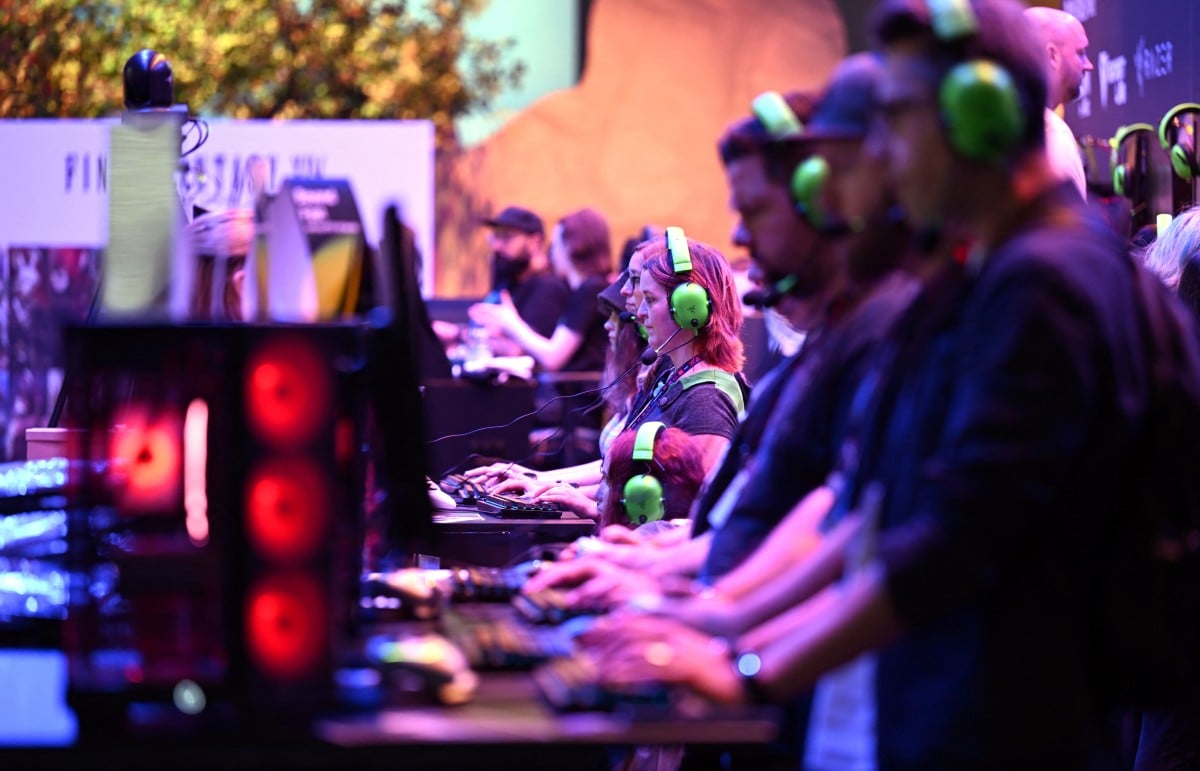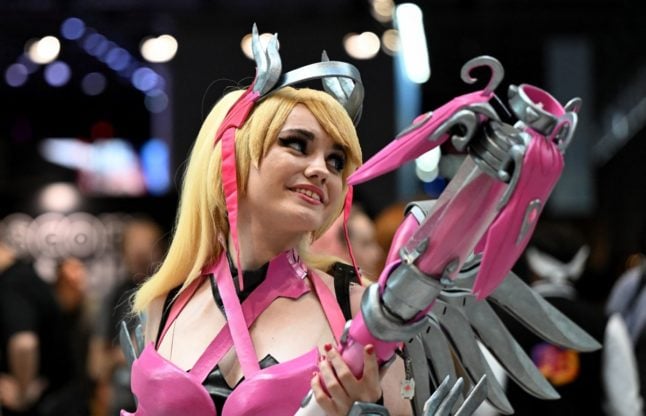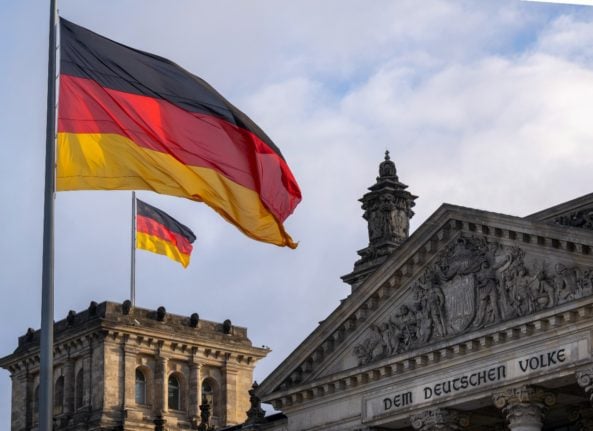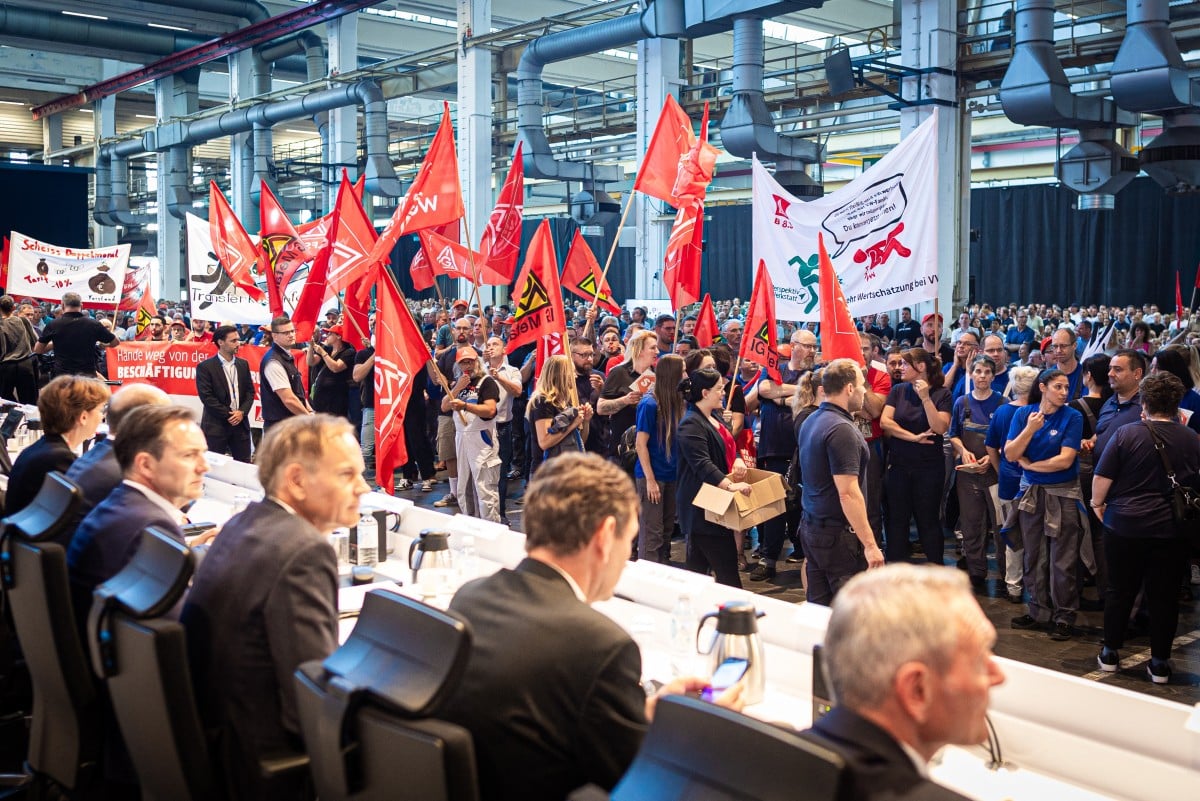“We’ll have to run,” said Mark Nass, a 20-year-old German who queued from 6:30 am outside the glass and steel Kölnmesse convention centre.
Nass was among many aiming to be first in line to play “Monster Hunter Wilds”, one of the most popular games at the annual Gamescom gathering.
The event serves as a celebration for fans, who get sneak peaks at new releases and chats with developers while spending time with like-minded folk.
But it is also a massive deal for the industry.
Although Microsoft is dominating this year’s event, hundreds of smaller companies are battling for a share of the attention.

‘A bit like Cannes’
Marina Diez from German independent studio BTF was showing off the game “The Berlin Apartment”.
“We’re showcasing it in a big event for the first time, before releasing the next year,” she told AFP.
She said getting opinions from players at the conference was vital to feed into the game design.
The stakes are getting higher for smaller studios, who rely on making deals with publishers to get their games out into the world.
But publishers are also struggling as major financial backers shift their focus to AI and other sectors.
Thousands have been laid off and many studios have shut down.
Gamescom gives creators a chance to do deals and secure vital funding.
“It’s a bit like the Cannes Film Festival in terms of business,” said David Rabineau, director of the Parisian independent studio Homo Ludens.
Mario vs Poppy
Crowds swelled on the conference floor during Thursday, the first day the public were allowed into the event, which runs until Sunday.
Shouts and applause erupted periodically from behind high partitions separating the stands from the alleyways, as attendees got to see trailers and snippets of gameplay.
Long queues formed in front of the “Assassin’s Creed Shadows” stand to get these invaluable titbits.
At other stands, attendees were able to play new games — some that have not been released yet.
Waiting patiently in the queue for “Dragon Ball: Sparking! ZERO”, 25-year-old German Lars was decked out in a red cap, blue overalls and a fake moustache.
“Everyone likes Mario! I like him because I used to play it when I was a kid,” he said.
But at an event expected to attract 370,000 attendees, some players were inevitably going to miss out on their number one game.
“I hoped to play ‘Monster Hunter Wilds’ but it was already full,” said Ype, a 28-year-old Dutchman decked out as Poppy from “League of Legends”, with pointed ears, blue face and two-metre-long hammer.
But he was not going to let that disappointment deter him.
“It’s cool to discover new games and meet people,” he said, before heading elsewhere to test the latest “Warhammer” release.
By Kilian Fichou




 Please whitelist us to continue reading.
Please whitelist us to continue reading.
Member comments